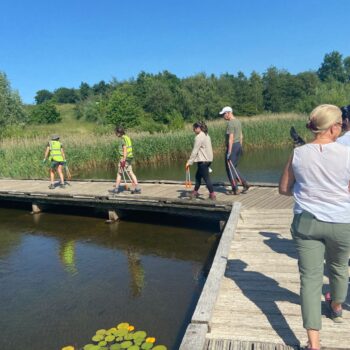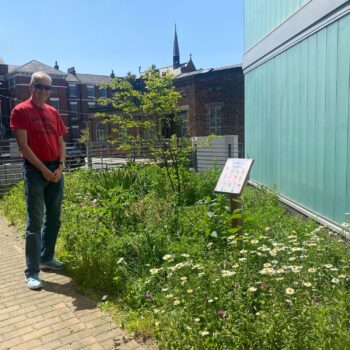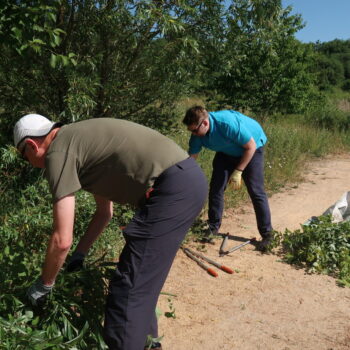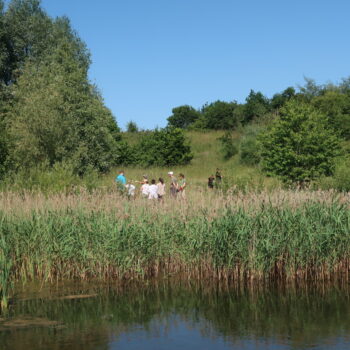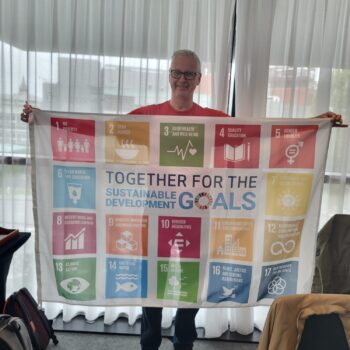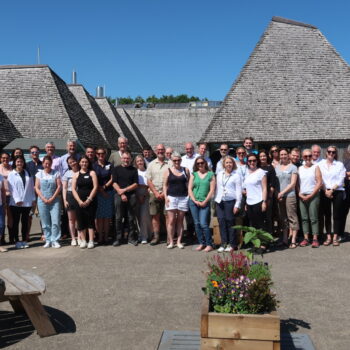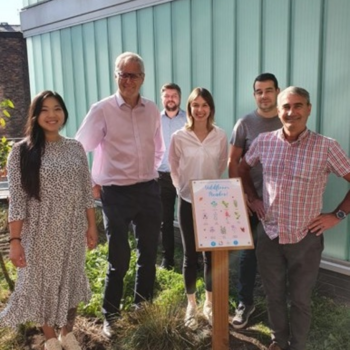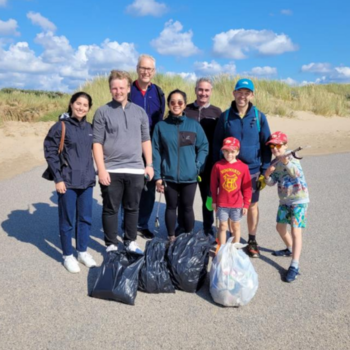I remember wanting to be a vet from when I was eight. My friend, Peter Williams, had accidentally stepped on a juvenile sparrow whilst running around the playground and had killed it. I remember thinking that had I been a vet, I might have been able to save it. My wish to become a vet was born out of a love for animals but also people and the planet. The job is certainly easier if you get on with people. We also need a healthy planet to do the job in the first place. From my teens, I would organise school meetings looking at conservation issues and supporting environmental charities. This is still a concern today and was one of the reasons why I started The Webinar Vet nearly 14 years ago. It was not just to make veterinary education more accessible and affordable than it was before but also to help make it easier for vets and nurses to reduce their carbon footprint by learning online rather than travelling long distances to evening and weekend courses.
 Over the last two years, The Webinar Vet has been facilitating the profession to regenerate into a more green and environmentally friendly place.
Over the last two years, The Webinar Vet has been facilitating the profession to regenerate into a more green and environmentally friendly place.
The sustainability summit as part of our annual virtual congress had 450 vets and nurses listening on a cold February afternoon this year and our veterinary green discussion forum in association with Vet Sustain has brought key members of the profession to a physical forum at Brockholes Nature Reserve near Preston to discuss how we can collaborate as an industry to quicken the transition to a greener future. Next June, the event will be discussing circularity and will be held at London Wetland Centre in Barnes. Premier Buying Group are attending as a delegate as well, showing Chris and the team’s commitment to this important area. Kate Brandt, Chief Sustainability Officer of Google, stated that this was the decisive decade. If we do not half our carbon usage in the next decade, it will be too late. I have spoken at several conferences on the climate crisis and at each event I have had new disasters to report on ranging from fires, droughts and floods. Extreme weather events are becoming increasingly common .
Events such as COP26 have pushed the topic of sustainability into the consciousness of many people. People realise they should be doing more of it but don’t want it to look like tokenism. When businesses want to make a difference in the world it makes them much more attractive to their stakeholders like employees, suppliers, clients and investors.
However, commerce has traditionally meant that profit trumps purpose. This is based on the comments of Professor Milton Friedman , when he suggested that the main responsibility of a business was to make profits and increase shareholder value. This negates aspects of social responsibility, and in late-stage capitalism, we are seeing the stark errors of our ways. Sustainable practices in business and a paradigm shift in ideals in commerce means that businesses should now look at incorporating the following:
– Sustainable Practice – how can a business thrive but also care for the planet
– Equitable Trade – purpose, not solely profit-motivated.
– The Impacts – how initiatives will have long-lasting benefits outside of their commercial activities
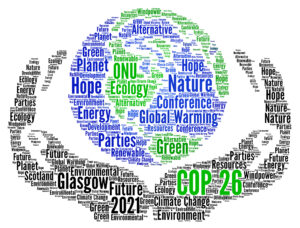
Of course, commerce traditionally has been about nothing else but profit and realising the best return on investors. This was the view propounded by Friedman and it dominated business thinking for decades, However, in the last decade more and more companies have begun to wonder if the only purpose of their business is to make money. This led the Business Roundtable, a group of influential CEOs in the USA, to state in 2019 that the purpose of a corporation is to promote an economy that serves five groups of stakeholders and not just investors.
- Clients
- Employees
- Supplies
- Shareholders
- Communities to also include the environment
It’s now clear that if a company damages the environment in its operation, it is only right and proper that the company rectifies the damage it has caused. Of course, everything we do in life has an impact on the environment but these can be lessened and offset to reduce our impact.
In the long term, if we do not practice sustainability, not only may the business fail but also the planet. As the Cree proverb goes: only when the last tree has been cut down; the last fish been caught and the last stream poisoned, will we realise that we cannot eat money!
At the very narrow level, sustainability can be seen as referring only to the environment but true sustainability is much broader than that. A culture of sustainability in a business or even an industry means that we also must look after the employees as well. At the moment, the veterinary profession is suffering from a shortage of vets due to Brexit and a massive upsurge in pet ownership due to the Covid 19 pandemic. If this problem is not solved, then many vets will leave the profession with a concomitant decrease in animal welfare and food safety standards.
Of course, talk is cheap so it is important to make sure that there are concrete actions which are put in place in the company to show the importance that the company places on these areas.
Employee Sustainability
Starting at employee level is a fantastic way to begin. Initiatives can be put into place that have indirect consequences on global sustainability and climate efforts, as well as intrinsic advantages in business.
At The Webinar Vet, policies have been developed to help to reduce our impact in all of these areas.
- We encourage our employees to utilise public transport or cycle.
- Hybrid working has been adopted post-pandemic.
- A wildflower meadow has been planted to increase local biodiversity and improve mental health.
- We also plant two trees for every paid membership that our veterinary community takes out. These trees are planted in the UK and in several developing countries where they provide shade for people and animals as well as increasing biodiversity. Indeed, I met some of the PBG team at a tree planting day organised by EcoOffset in Manchester.
Small actions can make a difference on an individual or business level. Our plastic plague is blighting our planet and must be reversed leading to a permanent ban on all non-biodegradable packaging. The average person in the UK buys 150 bottles of water a year. I stopped buying bottled water eight years ago except on very rare occasions and use a stainless-steel bottle instead. Water.org recently stated that if just 1 in 10 members of the public reduced their bottled water purchase to one a week, there would be a saving of approximately 340 million plastic bottles every year. Much of this plastic ends up not being recycled and clutters our countryside or lands up in our oceans damaging the environment and killing animals as well. If it does end up in landfill it may be incinerated which leads to carbon release and potential pollutants and a potential increase in environmental temperatures which is often felt worse in developing countries which are least able to cope with it. If we take our personal responsibility seriously, this can massively help people in other nations as well.
It’s important to state that The Webinar Vet and Simply Vets’ team are not perfect. We can still do more but we are on a journey of discovery and adventure to live more lightly on the planet.
In the perfect world, all businesses would have no environmental impact but this is virtually impossible. It is essential for all businesses to now begin the journey towards net zero and carbon neutrality. Forward thinking businesses have already committed to goals of zero to landfill or carbon neutrality. These commitments will have benefits not only in their own country but further afield. At the moment,40% of all the UK’s rubbish including recycling is burnt. This is not good enough and will also requires laws to stop environmental laggards continuing with this damaging and polluting method.
Becoming carbon neutral starts with the business measuring its carbon output and then looking at ways to reduce it.
There will always be easy low hanging fruit that can make massive differences like changing to a renewable energy provider like Good Energy in the UK and changing lighting to low energy LEDs. However, all business uses carbon and it will be impossible to reduce this to zero. This is where offsetting comes in. Offsetting is when companies buy carbon credits often from developing countries to help them. It has its critics and there has been examples of companies set up by dishonest people to scam well intentioned businesses. Offsetting can also be used by oil companies to completely offset their oil production without working towards an oil-free economy. Careful research is, therefore, necessary. However, if chosen well these schemes can directly benefit poorer communities. Examples include saving ancient rainforest in the Amazon being cut down and, therefore, allowing continued carbon sequestration by the forest. Buying solar stoves for women refugees in Mali allows their families to have warm nutritious meals using the power of the sun and saving trees that may have had to be cut down for firewood.
We are entering a new era of purpose-centred businesses that are not waiting on government but want to change the world for the better by looking at the big problems in the world and wanting to solve them.
In a recent article in The Washington Post, Daniel Souleles provided an interesting insight into the radical shift that business is undergoing, by stating, “we are entering a new era of stakeholder capitalism in which CEOs are combining a zeal for profits with a zest for solving our epoch’s great challenges: climate change, police brutality, public health emergencies — you name it, the CEOs are on it!”
Whilst it is refreshing to see some big business acting like this, it has been much more common in small businesses rooted in the local community wanting to make a difference to people around them. With the advent of online businesses it has become more commonplace for even small businesses to have a global community that they can help.
Having sustainability at the core of business is no longer a nice to have. It is expected by clients, banks and investors and shows a caring business that is concerned about the future of the planet for all its inhabitants. All companies must start on this journey if they have not already.
Anthony Chadwick BVSc CertVD MRCVS
Founder and CVO, Alpha Vet International

Anthony Chadwick BVSc CertVD MRCVS qualified from Liverpool University in 1990 and received his certificate in Veterinary Dermatology in 1995 from the Royal College of Veterinary Surgeons. Anthony was involved in first opinion practice and dermatology referrals until 2016. In 2010 Anthony set up The Webinar Vet, the first online training platform for veterinarians and nurses, in an attempt to make veterinary education more accessible and affordable across the world. Since that time tens of thousands of veterinarians and nurses have accessed the platform from all over the world. The Webinar Vet’s first virtual conference took place in 2013. During the pandemic, The Webinar Vet helped to take over 40 veterinary meetings and conferences online including WVAC2020 and WCVD9.
